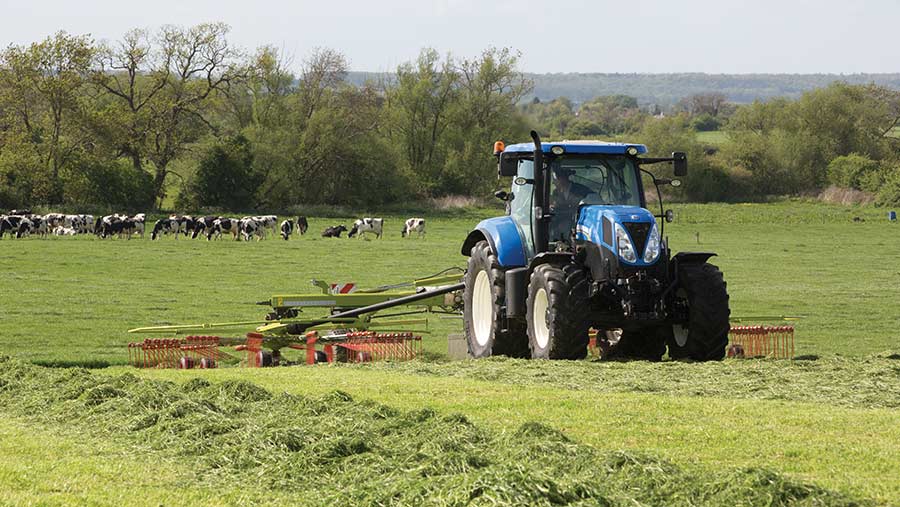Business Clinic: What is needed in silage supply agreement?
 © Tim Scrivener
© Tim Scrivener Whether it’s a legal, tax, insurance, management or land issue, Farmers Weekly’s Business Clinic experts can help.
Thomas Hind, senior rural surveyor at Carter Jonas, sets out the considerations for an agreement to supply silage to a neighbour.
See also: Business Clinic: Costs and considerations of natural burial sites
Q: We are getting on and plan to sell our 200-cow dairy herd this autumn. Neighbours have approached us to grow maize and grass silage for them next year. We have agreed, but want to formalise the arrangement. What should we be putting in our agreement to supply the silage?
A: There is a lot to consider, so formalising the agreement in writing is sensible.
A supply agreement should start with the basics: names and addresses of the parties, the crop to be supplied and the price (including payment terms), which could be either a pre-agreed value (such as per acre) or a method to calculate the value later in the season, such as a price per tonne, costs of production plus a profit margin, or even market value on a given date.
If a specific tonnage is to be sold, you should set out what will happen if the yield is significantly more or less than expected.
The agreement should also establish the specification of the crop – both in terms of its makeup (composition of varieties, herbs, clovers etc) and quality, detailing what tolerances are acceptable before the price is docked or crop rejected.
It may be suitable to develop the supply arrangement into an option to purchase if your neighbour’s requirements are very specific or subject to change.
In addition to the above terms, an option period could be set with a deadline for them to inspect the growing crop and decide if they will buy it, following which a deposit could be charged.
Setting a deadline is particularly important if the crop does not meet their specification, as it allows you time to make alternative arrangements.
Point of sale
In both situations it is important to establish at what point the crop will be sold – whether standing, in swath, baled, or in bulk. Will the crop be delivered, and if so, how will it be presented – wrapped and stacked or clamped?
Equally, if sold in the field, which fields or areas have been sold, how are they to be accessed, who is responsible for mowing, tedding, and raking?
If timescales are to be imposed, are there to be penalties for late delivery/removal? Who is liable for any damages (tracks, drains, soil reinstatement etc)?
There is no right and wrong answer, but all these questions need to be considered and agreed in the context of each party’s abilities and expectations before commencement.
Finally, consider including arrangements for termination and any disputes that might arise, as well as wider influences such as environmental schemes.
A contract farming agreement could also be considered, working in collaboration with your neighbour. The partnership is in control of the land and therefore has clear communication with contractors, the product can be sold to the neighbour and if there is excess, this may be sold on the market to mutual benefit.
As ever, consider the wider implications of change, such as tax. While you continue actively farming, this is unlikely to be an issue, but care should be taken that such agreements do not change over time to your detriment.
Do you have a question for the panel?
Outline your legal, tax, finance, insurance or farm management question in no more than 350 words and Farmers Weekly will put it to a member of the panel. Please give as much information as possible.
Email your question to FW-Businessclinic@markallengroup.com using the subject line “Business Clinic”.
